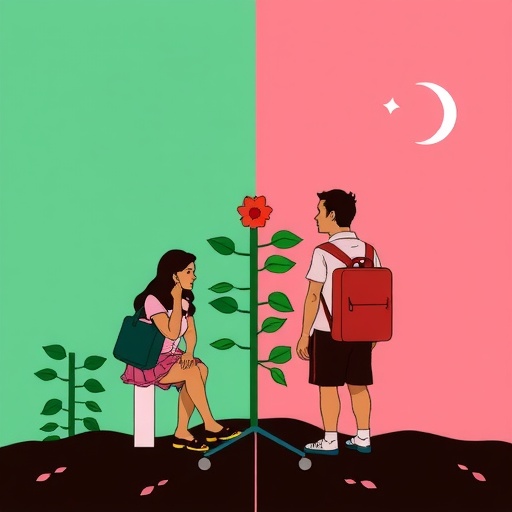In a groundbreaking study published in Current Transplant Reports, researchers Bavi and Rizzolo address a pressing yet frequently overlooked issue in the transplantation landscape—the disparities between undocumented immigrants seeking solid organ transplants and transplant tourists who travel specifically for transplantation. This research offers a comprehensive analysis of how these two distinct groups impact transplant centers and the broader framework of national policy within the Organ Procurement and Transplantation Network (OPTN).
The authors begin by framing the context of organ transplantation in the United States. They highlight the systemic challenges faced by both undocumented immigrants and transplant tourists. With increasing pressures on the nation’s healthcare systems, understanding the dynamic interactions between these groups is more important than ever. The study emphasizes how undocumented immigrants often face additional barriers—not only medical but also legal and financial—that complicate their access to life-saving treatments.
Undocumented immigrants, who represent a significant portion of those awaiting organ transplants, often encounter a healthcare system that is unwelcoming and fraught with challenges. Many are reluctant to seek care due to fears of deportation or financial ruin. This situation puts them at a disadvantage compared to transplant tourists, who generally have the financial means to navigate international transplantation systems. The researchers illustrate this disparity through qualitative data, providing a lens into the emotional and psychological toll this reality takes on individuals desperate for care.
On the other side of the spectrum, transplant tourists tend to be individuals from wealthier nations who travel to access specific transplant services that may either be unavailable or prohibitively expensive in their home countries. Bavi and Rizzolo critically assess how this phenomenon shifts the focus from equitable access to transplantation. The implications for U.S. transplant centers are considerable. Hospitals may prioritize patients with financial resources over those who are less economically endowed, leading to ethical dilemmas that challenge the very foundations of medical ethics and the principle of justice in healthcare.
An essential aspect of the study is how these two groups influence national policy development under the OPTN. The authors argue that the current policies may inadvertently favor transplant tourists, exacerbating existing inequalities. They call attention to the need for policy reform that acknowledges the distinct needs of undocumented immigrants while also addressing the complex motivations of transplant tourists. Effective policy development should involve stakeholder participation from both communities to ensure all voices are heard and considered.
One key finding in their analysis is how the presence of transplant tourists affects the allocation of organs. As hospital practices evolve in response to market demands, the researchers found that the prioritization of financial stability introduces a new layer of complexity in organ allocation, potentially undermining the principles of equity and fairness. This finding raises critical questions about the responsibilities of transplant centers in the context of global health disparities and access to care.
Furthermore, the authors emphasize the importance of ongoing research in this domain. They advocate for data collection that disaggregates information on patient outcomes based on immigrant status and socioeconomic background, allowing for a clearer picture of how different groups fare within the transplantation system. By understanding these dynamics, policymakers can develop targeted interventions that support vulnerable populations while maintaining equity in organ allocation.
In conclusion, Bavi and Rizzolo’s comprehensive exploration offers invaluable insights into the intricate relationship between undocumented immigrants and transplant tourists in the context of organ transplantation. As the study highlights, addressing the disparities between these groups is not just a matter of policy; it is a moral imperative that reflects on the values of society as a whole. The implications of this research extend beyond transplantation; they provoke broader discussions about healthcare ethics, social justice, and the fundamental rights of all individuals to access necessary medical care.
As policymakers and healthcare providers grapple with these pressing issues, the call for a re-evaluation of current policies has never been more urgent. Their findings necessitate a multifaceted approach to shift the balance toward a more equitable healthcare system that is inclusive of all patients, regardless of their immigration status or financial capacity. The study serves as a clarion call for action, urging stakeholders to take steps toward policies that are just and fair, ensuring that both undocumented immigrants and transplant tourists are treated with dignity and respect in their pursuit of life-saving medical care.
In essence, the research challenges us to rethink the structures that govern organ transplantation and to embrace a vision that prioritizes equity as a core principle. Policymakers must take note of the realities faced by both undocumented immigrants and transplant tourists, working to formulate a system that serves the best interests of all patients without discrimination or bias. The dialogue initiated by Bavi and Rizzolo can serve as a catalyst for change, honoring the intrinsic value of every life and the right to health that transcends borders.
This significant study offers a crucial lens through which we can view ongoing challenges in organ transplantation and highlights the need for compassionate and comprehensive policy reform. By shedding light on these issues, Bavi and Rizzolo provide a foundation for future discussions and research that can lead to a more just approach to healthcare, one that recognizes the humanity in every patient and prioritizes access to care as a universal right.
Subject of Research: Disparities between undocumented immigrants and transplant tourists in organ transplantation and their implications on healthcare policy.
Article Title: Impact and Implications of Solid Organ Transplant of Undocumented Immigrants versus Transplant Tourists on the Transplant Center and OPTN National Policy Development.
Article References:
Bavi, S., Rizzolo, K. Impact and Implications of Solid Organ Transplant of Undocumented Immigrants versus Transplant Tourists on the Transplant Center and OPTN National Policy Development.
Curr Transpl Rep 11, 294–299 (2024). https://doi.org/10.1007/s40472-024-00445-5
Image Credits: AI Generated
DOI: 10.1007/s40472-024-00445-5
Keywords: Organ Transplantation, Undocumented Immigrants, Transplant Tourists, Healthcare Policy, Equity, OPTN, Access to Care.




